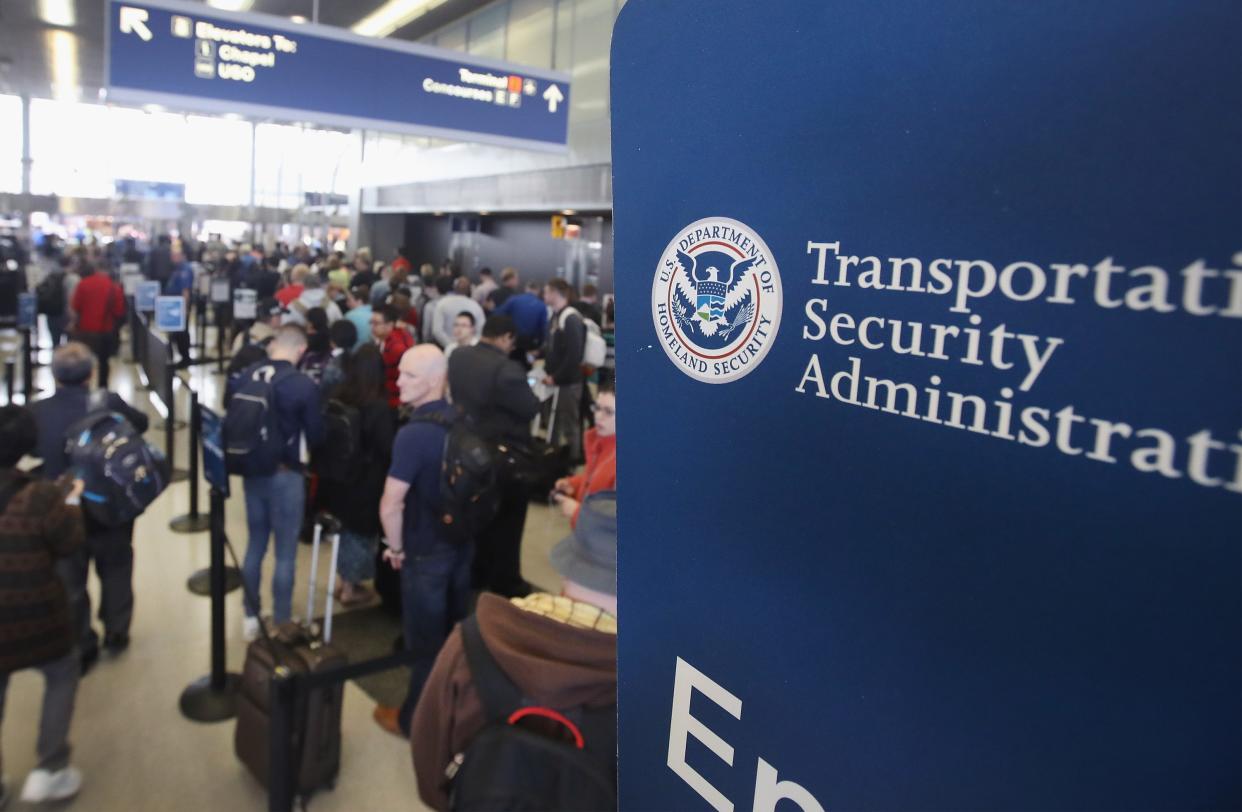Flying with breast milk or formula? Don't worry about liquid limits. Here's what to know.
Actress Keke Palmer called out airport security officers in Houston this month on Twitter, saying they threatened to throw out more than 16 ounces of breast milk as she was going through security.
The officers were unambiguously in the wrong if they did ask her to get rid of her breast milk.
A Transportation Security Administration spokesperson told USA TODAY the agency was not aware of the incident but said travelers are encouraged to submit comments and concerns to the agency directly if they encounter issues during their screening.
TSA regulations make generous allowances for milk and formula:
Formula, breast milk, toddler drinks, and baby/toddler food (to include puree pouches) in quantities greater than 3.4 ounces or 100 milliliters are allowed in carry-on baggage and do not need to fit within a quart-sized bag. Formula, breast milk, toddler drinks, and baby/toddler food (to include puree pouches) are considered medically necessary liquids. This also applies to breast milk and formula cooling accessories, such as ice packs, freezer packs, and gel packs (regardless of presence of breast milk). Your child or infant does not need to be present or traveling with you to bring breast milk, formula and/or related supplies.
Travelers can also notify the TSA if they plan to travel with medically necessary liquids.
Nikeytha Ramsey, founder and CEO of Junobie, a company that produces sustainable, plastic-free storage containers for breast milk and baby formula, said it’s important for parents to know their rights when they fly with such liquids and to stick up for them if they run into any problems.
“It says it right here on your website that I am allowed to fly. Breast milk does not count against the 3.4-ounce rule. Neither does baby formula,” she said. “So just like what your website says ... I would appreciate if you can honor this right now for us.”

Ramsey added that it’s usually a good idea to notify TSA agents about any breast milk or formula you may be traveling with before your screening starts.
“You never know what TSA agent you are going to get. You can get a really, really pleasant TSA agent and they're not going to really give you any issues,” she said. “I will inform TSA, ‘Hey, I do have breast milk,’ or if you are a parent that has baby formula or baby food, inform them that you do have these things. That's what I always do. And they will take it over to either the bottle X-ray to screen it, or they will do what we call a vapor test.”
Tell us your story: Mobility device lost or damaged by an airline? USA TODAY wants to hear about it.
Sens. Tammy Duckworth, D-Ill., Mazie Hirono, D-Hawaii, and Steve Danes, R-Mont., reintroduced legislation in May that would require the TSA to better educate its officers about its policies, citing reports from constituents of complaints similar to Palmer’s.
“Too often, I hear stories of traveling moms being mistreated and denied access to their breast milk and the breastfeeding equipment that they need to pump and feed their babies,” Duckworth said in a statement. “Many of these incidents are inconsistent with TSA’s screening policies, which is why I’m proud to reintroduce this bipartisan legislation to ensure TSA keeps its employees up to speed on their own policies and updates those policies as necessary. It’s the least we can do to help make sure parents traveling through our airports are given the respect and dignity they deserve.”
The Bottles and Breastfeeding Equipment Screening Enhancement (BABES) Act would require the TSA to:
Issue guidance promoting the hygienic handling of any breast milk, baby formula or other infant nutrition products, as well as accessories traveling through checkpoints.
Consult with nationally recognized maternal health organizations in establishing and communicating the guidance to officers and travelers.
Update its guidance every five years to respond to the emerging needs of parents and to account for developments in technology.
For now, the TSA recommends traveling with breast milk or formula in clear, translucent bottles rather than in bags, which can be harder to screen.
Travelers should know their rights when flying with breast milk, formula or related devices, and they can check out the TSA’s full guidelines linked again here.
Contributing: Ariana Triggs, USA TODAY
Zach Wichter is a travel reporter for USA TODAY based in New York. You can reach him at zwichter@usatoday.com
This article originally appeared on USA TODAY: TSA rules for flying with breast milk or baby formula, explained
